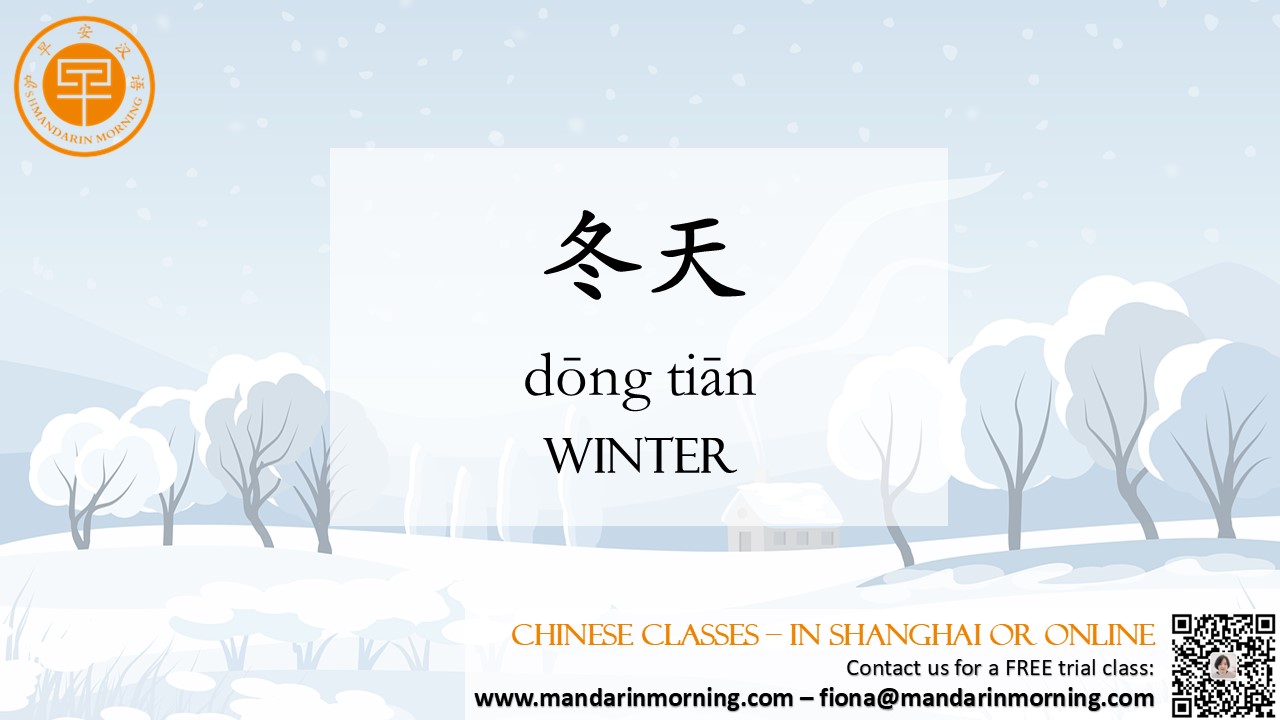| As the winter season approaches, it's the perfect time to learn some essential Chinese vocabulary that will help you describe the cold weather, traditional customs, and festive activities. Whether you're planning a trip to China or just want to expand your Chinese language skills, here are some important words and phrases related to winter that you should know.  冬天 (Dōngtiān) – Winter. This is the first word that comes to mind when thinking about the season. 冬天 is the term for "winter" in Chinese, and it's a great starting point for your winter vocabulary. 寒冷 (Hánlěng) – Cold. With winter comes the chill. 寒冷 is used to describe the cold weather, and it's a useful word to express how you're feeling during the colder months. 雪 (Xuě) – Snow. Snow is a quintessential part of winter in many regions. 雪 is the Chinese character for "snow," and it's a beautiful word to describe the white, fluffy flakes that cover the ground. 冰 (Bīng) – Ice. Ice forms when water freezes, and 冰 is the Chinese character for "ice." It's a great word to know, especially if you enjoy winter activities like ice skating or ice sculpting. 羽绒服 (Yǔ róng fú) - Down Jacket. Staying warm is crucial during the winter, and 羽绒服 is the term for a down jacket, which is perfect for keeping you cozy and warm. 火锅 (Huǒguō) - Hot Pot. One of the best ways to warm up in winter is by enjoying a hot meal. 火锅, or hot pot, is a popular Chinese dish where you cook various ingredients in a shared pot of boiling broth. 春节 (Chūnjié) - Spring Festival. While it's not exclusively a winter festival, the Spring Festival, also known as Chinese New Year, often falls during the winter season. It's a time for family reunions and is one of the most important holidays in China. 冬至 (Dōngzhì) - Winter Solstice. As we discussed in our previous article, 冬至 is the Winter Solstice, a day that marks the shortest day and the longest night of the year. 暖气 (Nuǎnqì) – Heating. To stay comfortable indoors during the cold winter months, you'll need 暖气, which means "heating" in Chinese. 滑冰 (Huá bīng) - Ice Skating. For those who enjoy winter sports, 滑冰 is the term for ice skating, a popular activity during the colder months. 滑雪 (Huá xuě) – Skiing. If you're looking for a more adventurous activity, 滑雪 is the word for skiing, a thrilling sport that many people enjoy in the snowy mountains. 暖和 (Nuǎnhuo) – Warm. After being out in the cold, it's always nice to come back to a warm environment. 暖和 is used to describe something or someone that is warm. By learning these essential Chinese words for winter, you'll be better equipped to communicate about the season, whether you're discussing the weather, planning activities, or simply wishing someone a warm and cozy winter. So, bundle up and get ready to embrace the winter in Chinese! |